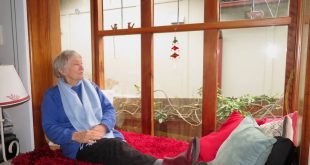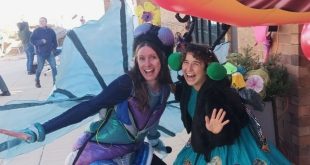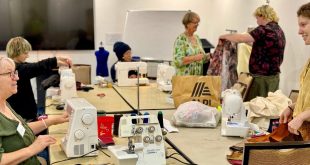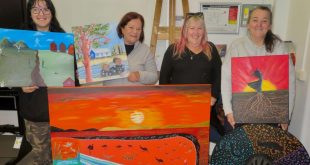Will talks about the endangered Dwarf Mountain Pine, a true living fossil, in this video by Kalani Gacon.
Thanks to generous funding from the NSW Saving Our Species program, Council is undertaking extensive catchment protection works to safeguard the Dwarf Mountain Pine.
Story by Linda Moon
A cadetship with the Healthy Waterways Team at Blue Mountains City Council has helped 23-year-old Will Goodwin pursue a passion for helping wildlife and nature.
Key Points:
- Many children dream of working with wildlife. Will Goodwin went on to make his dream a reality.
- Citizen science and volunteering is another way to get involved.
- Will says hope, working together, and focusing on your circle of influence is the key to making a difference.
Growing up in Faulconbridge, 23-year-old Will Goodwin spent a lot of his childhood in the bush. Two incidents in particular had an impact on him. At age eight, he had his first glimpse of a Giant Spiny Crayfish down at Hazelbrook Creek. The moment was one of awe. “At the time I didn’t know they were endangered,” he recalled. Tragically, in 2023 the population was decimated by contamination of the waterway with the pesticide Bifenthrin.
After his HSC, Will’s mother took him on a life-changing road trip to the Outback. In Menindee they heard news of a major fish death event affecting the Darling River. “That’s when I realised how important water is,” Will said.
Will also observed how much lushness and life existed around the Darling River compared to the rest of the arid landscape. The approach to the river was green, brimming with wildlife and towering River Red Gums. It was water that made the difference. “It’s something we don’t value as much as we should,” he reflected. “We should really look after that.”
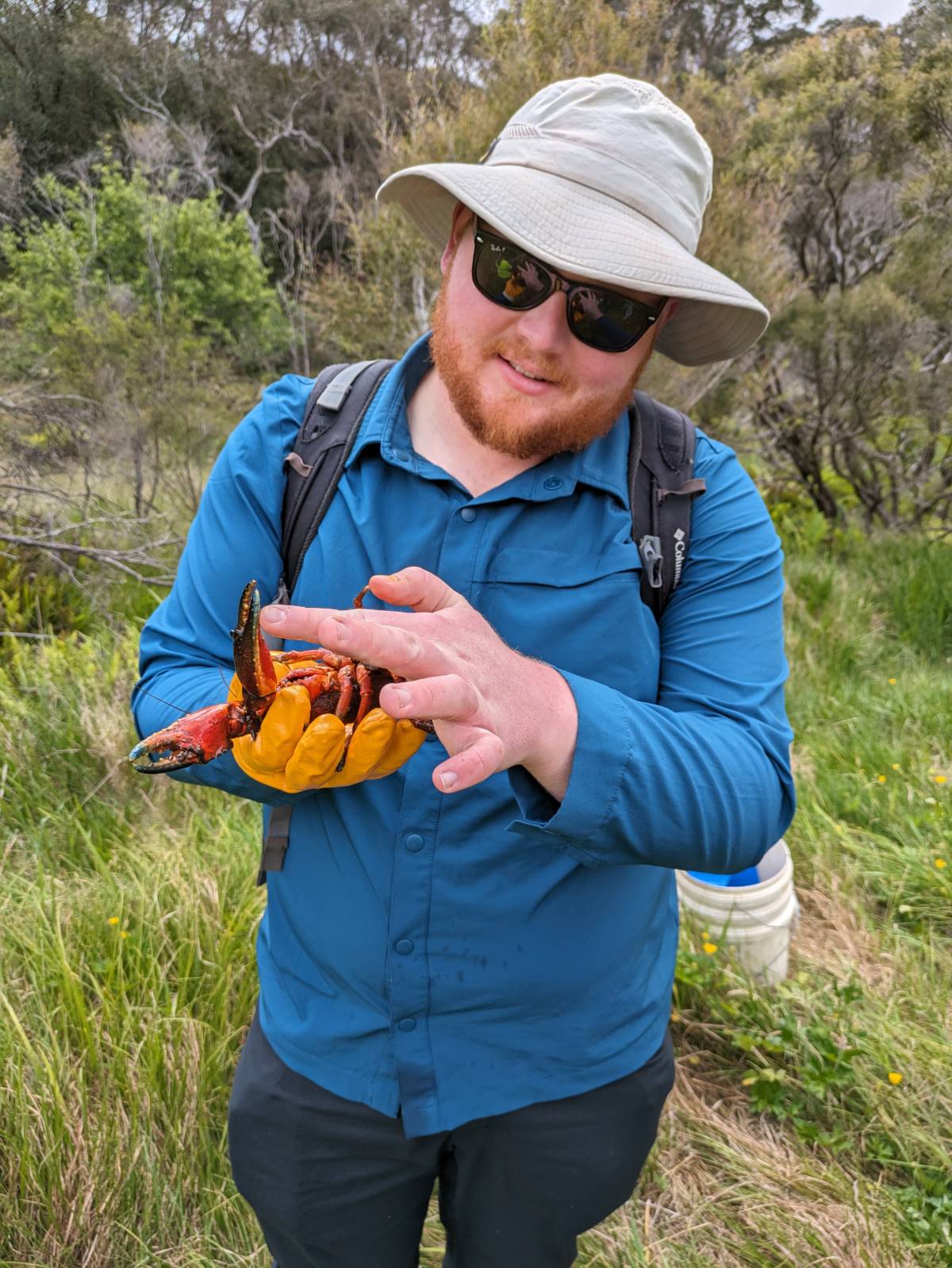
Will with a Giant Spiny Crayfish. “It’s been great to look after the crayfish and waterways. These are incredibly ancient animals that can live for a hundred years.” (Photo: Amy St Lawrence)
BMCC Healthy Waterways cadet
Fast forward to now and the Katoomba resident is directly involved in helping protect water quality as a cadet with the Healthy Waterways Team at Blue Mountains City Council (BMCC). In what seems serendipity, Will is one of the first environmental science cadets for the Team. Concurrently, he’s completing a Bachelor of Natural Sciences at Western Sydney University.
“I think the biggest highlight of my job has been the people I’ve had the privilege of working with. Every day I work alongside such smart, compassionate people, who have dedicated their lives to caring for something bigger themselves. They have been such generous teachers, and I have learned so much from them. “
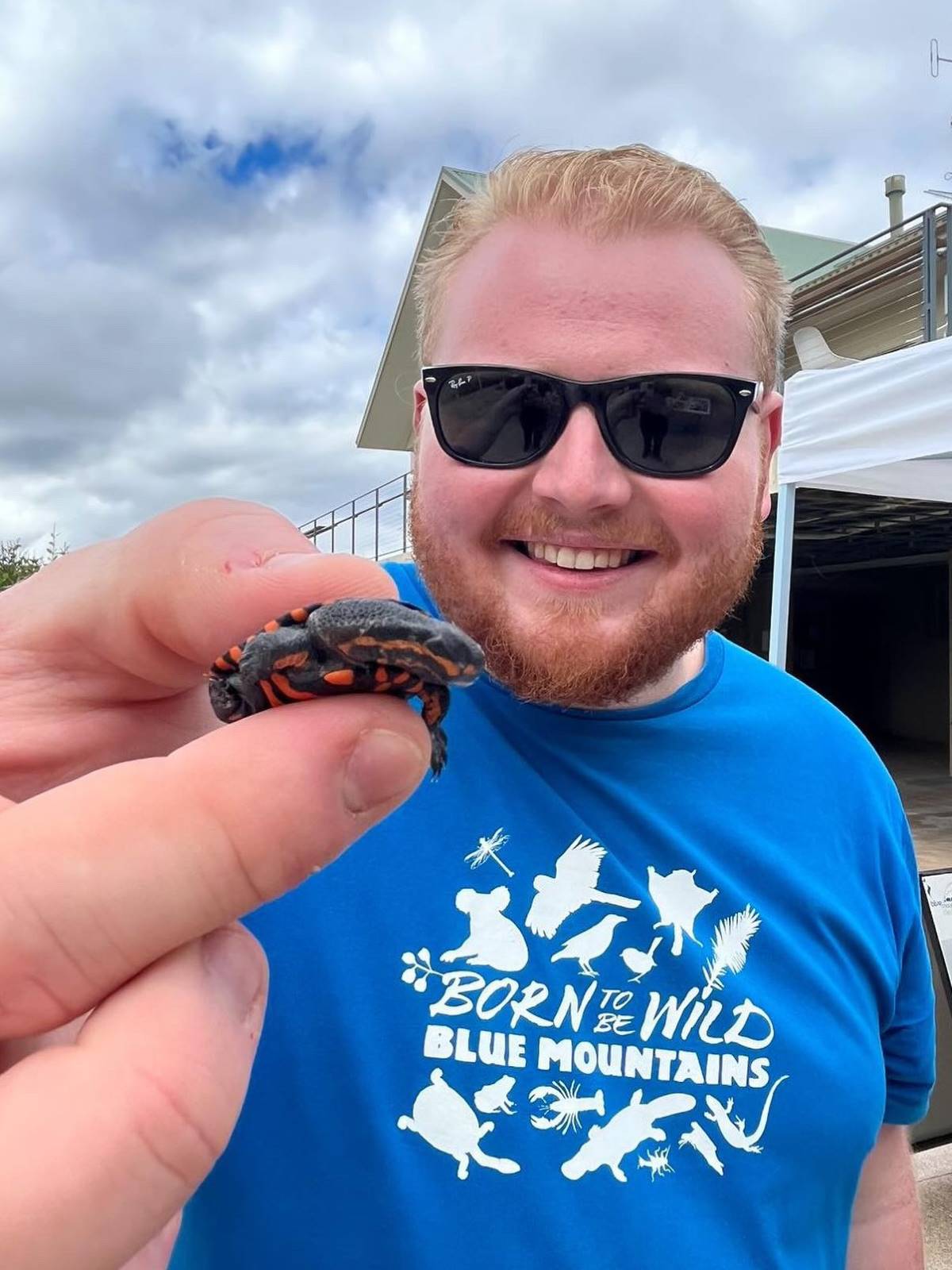
Will Goodwin holding a newly hatched Eastern Long-Necked Turtle. “One of my pet projects in the last couple of years is turtles.” (Photo: Holly Nettle)
“What I also love is that no day is typical,” he enthused. Each year, the team visits and assesses 70 sites across the Blue Mountains to monitor human impact on local waterways. This includes remote areas where no human goes. “Which mostly means working in nice places,” Will said. “There’s only two cities on the planet in a World Heritage area – Banff (in Canada) and us. So that’s a pretty unique position to be in.”
It also presents challenges for the environment.
Our vulnerable waterways
“We are sitting right on top of a hill and we use all the waterways as our drains,” he lamented. “So, all the leaky cars and leaky sewers are going into the stormwater system – their sole purpose is out of sight, out of mind. In most cases there’s absolutely no filtration. So all the problems in our own backyards are getting an express ticket into the wilderness.”
A lot of our villages are old and have terracotta pipes that are easily cracked, Will further explained. Roots only infiltrate pipes that are leaking in the first place: “they’re not omniscient,” he said.
Monitoring water issues
The team test for parameters like water temperature, turbidity (cloudiness), pH and faecal bacteria. Nitrogen and phosphorus – also tested – are the main ingredients in fertilisers and organics like sewerage. “When there’s too much of that you get algal bloom and weeds growing,” he said.
But, because of cost factors, not all toxins can be monitored. The team are unable, for example, to routinely test for heavy metals or forever chemicals like PFOS.
The best gauge of ongoing water health is counting bugs. Some aquatic bugs (such as the larval stages of Mayflies, Stoneflies, Caddisflies and Dragonflies) are sensitive to pollution. “And the lab tests only tell us what the water is doing at that time,” Will said.
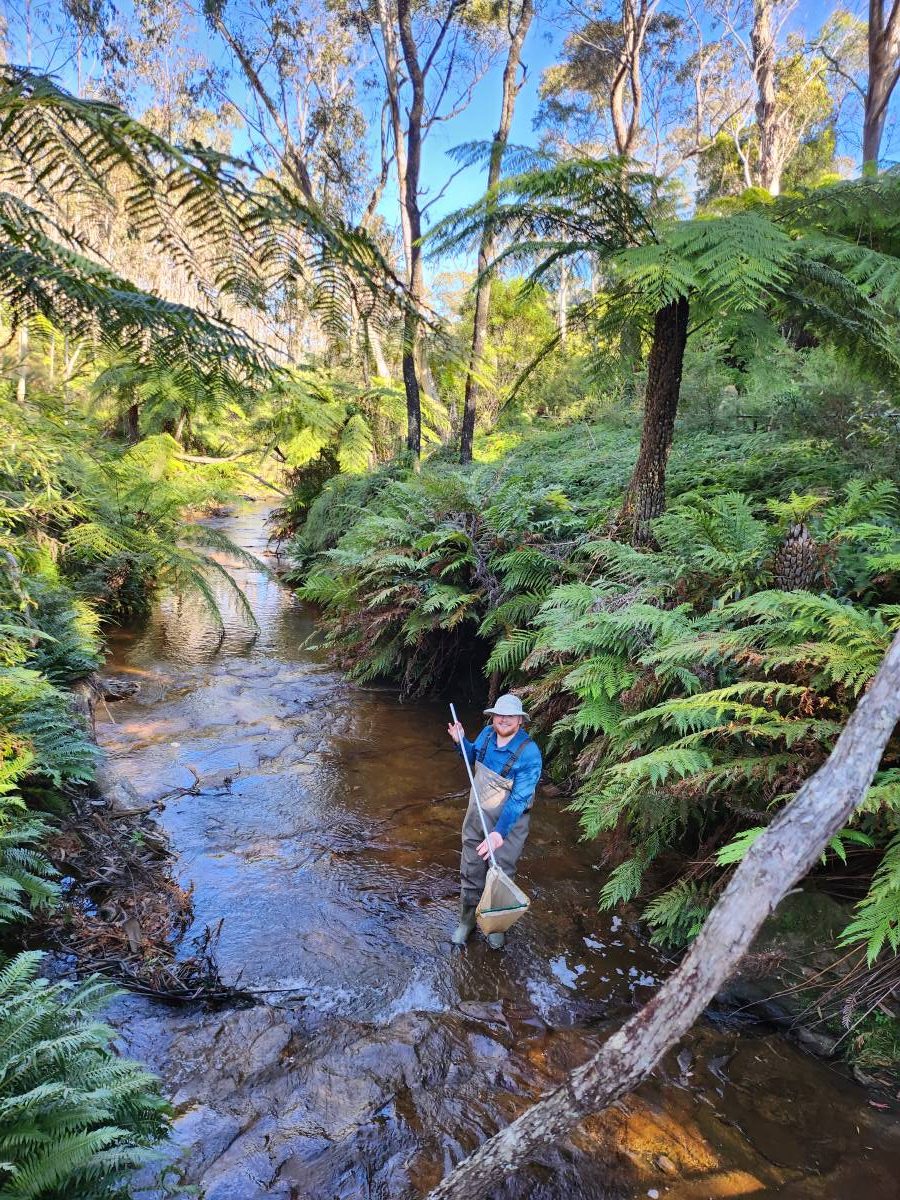
On the job at Leura Cascades. “I’m privileged to live in such an incredible place.” Photo: Amy St Lawrence
Fixing environmental problems
As part of his cadetship, another “pet project” of Will’s – the Blue Mountains Perch – is also threatened by water issues. “Out of all the vertebrates in the mountains, I think it’s the most likely to go extinct,” he said. “Again, it’s storm water doing it – driveways and construction sites, soil going into creeks, blanketing over the breeding habitat.”
“Stormwater is our most pressing environmental issue in the Mountains. It’s so destructive, but also something we can fix.”
He offers the powerful example of the restoration of Minnehaha Falls. In the early 2000s it was inundated with sand. Improvements to storm water – some filtration, rain gardens and pollutant traps, helped clean up the water. “Then it just rained and rained and the water just flushed out the sand itself,” Will said.
“Nature has an incredible ability to heal if we fix what’s hurting it in the first place.” – Will Goodwin.
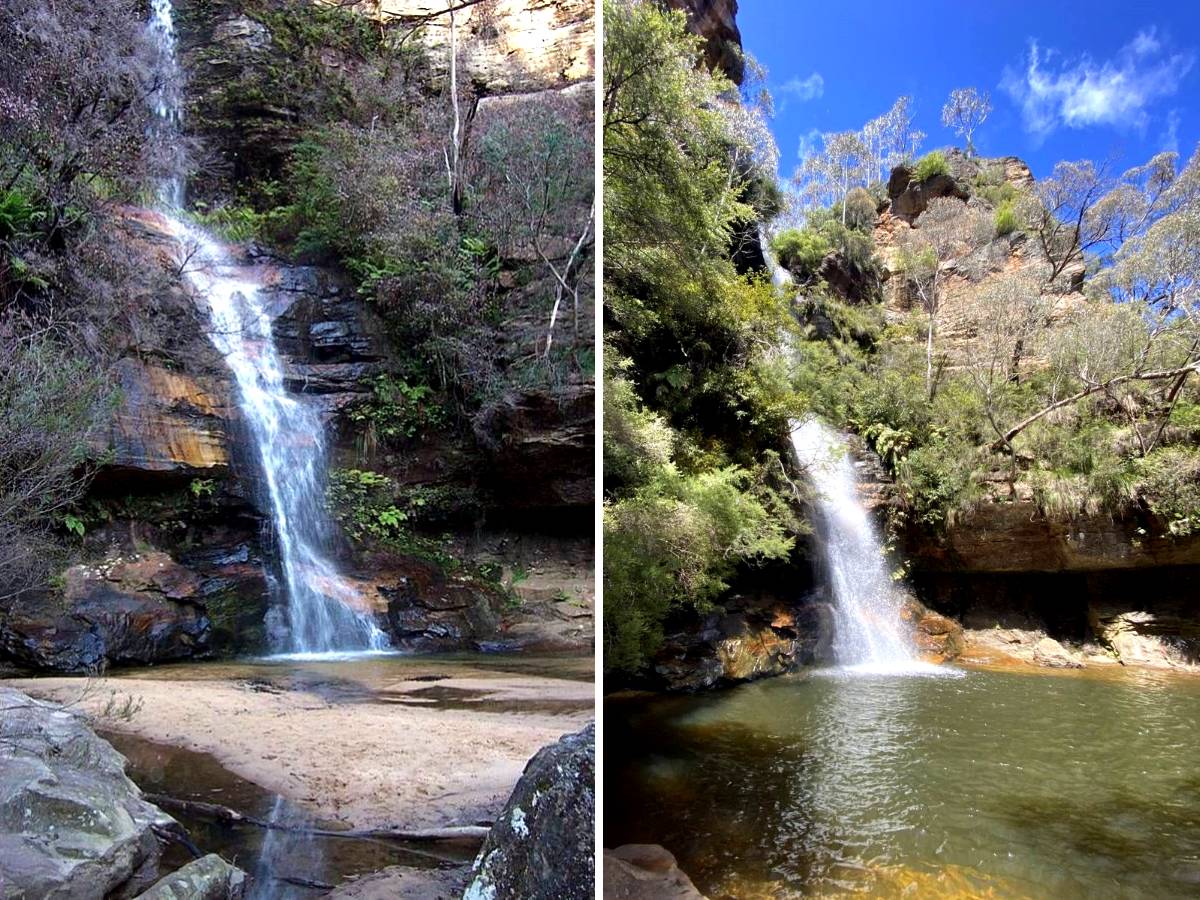
Minnehaha Falls at Katoomba in 2003 (left) and 2022 (right).
Education is key
Another big aspect of the job is education. “So that is getting kids out in bush connecting with nature,” he said. He’s worked with all ages from babies to seniors. “All of those age ranges love holding a turtle. You don’t need to teach kids to love nature. They innately do.”
“Fundamentally, the most important thing is encouraging people to care and facilitate change.”
Citizen science to the rescue
Long before he started University, Will was a passionate advocate for wildlife. He’s contributed to iNaturalist, FrogID, the Aussie Bird Count and more.
To prove the value of citizen science, he tells the story of a woman in his street who photographed a strange bee. It turned out to be Sericogaster fasciata, a bee previously thought to be extinct.
A recent study found a whopping half of all species recorded in the Atlas of Living Australia come from citizen scientists.
Will’s recent nature discoveries include finding scorpions and bioluminescent fungi on one of his favourite bush trails at night – with the aid of a UV torch light. “The more you look the more you realise that you’re just scratching the surface,” he said.
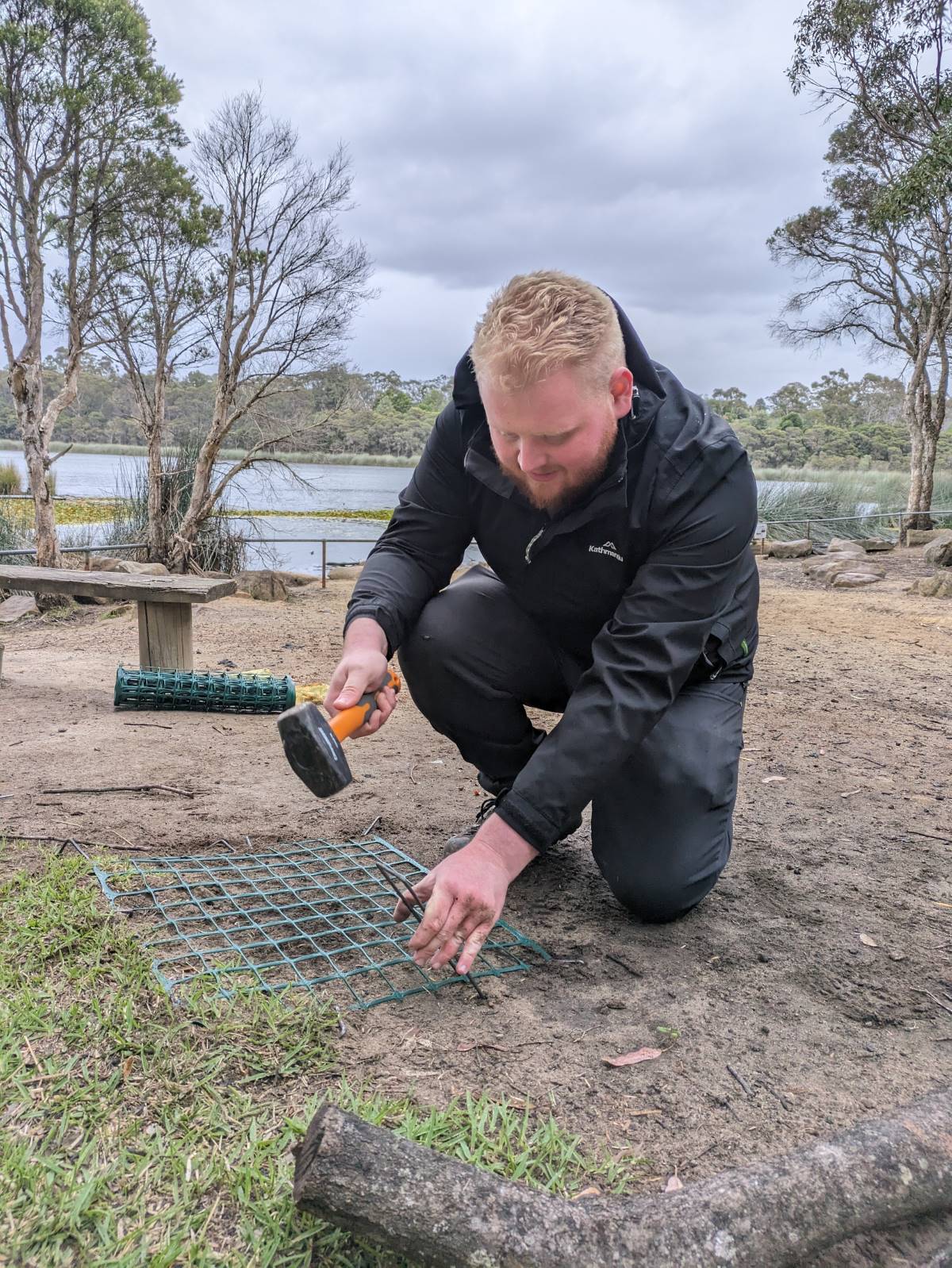
Will Goodwin protecting a turtle nest at Glenbrook Lagoon, says, “Science can be fun.” Photo: Amy St Lawrence
Going social
Will also posts environmental videos to his Tik Tok channel. After his video on how to recycle the foil of Easter eggs went viral he became interested in science communications.
“As one person you can only do so much. If you can bring others along with you on the journey, that’s how we will get where we need to go.”
“It’s easy to think you can’t make a difference. A lack of hope stymies progress.” – Will Goodwin.
Careers in environmental science
Will encourages others to work in the environment and said it’s a growing field. “We need more people.”
While environmental jobs in areas like mining and development can conflict with values, “the reality is we need people who care in all of those roles,” he said.
How to make a difference
But you don’t have to work in the field to help wildlife. The passionate nature lover is brimming with stories that prove how just one person in their local area can make a difference.
One of the recent projects he’s been involved with through working at Council has been protecting turtle nests at Glenbrook Lagoon. “They’ve now hatched,” he said. “If they hadn’t been protected there’s a 95 per cent chance they’d have been eaten by foxes. Knowing there are little turtles out there because of me, it’s incredibly rewarding.”
Will also constructed basking platforms for the turtles – to give them a place to dry out safe from dogs and people. “We’ve had landholders, community groups, schools and traditional owners all noticing. Those three platforms have turned into about 25 now,” he said. “It’s snowballed and growing and that’s where I feel I can make a difference. People care and by being able to encourage and facilitate that, that’s where we’ll get where we need to go.”
“Try not to focus on what’s outside your circle of control. “Always focus on what you can do because there’s plenty you can do.” – Will Goodwin.
Take Action:
- Be part of citizen science in your local area. You could try iNaturalist, FrogID, and the Aussie Bird Count
- Learn about careers in environmental science.
- Join forces with others through volunteer groups.
Share this article:
This story has been produced as part of a Bioregional Collaboration for Planetary Health and is supported by the Disaster Risk Reduction Fund (DRRF). The DRRF is jointly funded by the Australian and New South Wales governments.
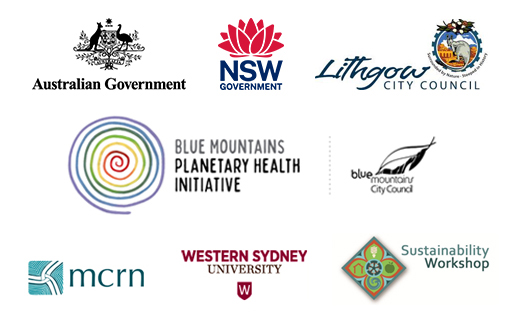
More from around the region
Did you know that old lino, window putty, and adhesive can contain asbestos? Yesterday the Asbestos & Hazardous Materials Management Conference kicked off with a pre-conference workshop at the Blue Mountains Planetary Health Centre. It included hands-on `spot the asbestos` and asbestos sampling sessions. This year`s theme is `Working together for a safe and healthy future`. #asbestos #hazardousmaterials #conference #planetaryhealth #bluemountains #katoomba
A huge thank you to Josh Logan from Logan Signs, Lithgow, for installing our Circular Water Signage in time for our World Animal Day Celebration today at the Blue Mountains Planetary Health Centre (33-39 Acacia St Katoomba). We have a full program of events with lots of information on how to prepare for the summer ahead and how to create urban areas that help us share our home respectfully with all species. It will be a fun family day too with storytime, craft and live music for kids! (Link in profile) #worldanimalday #planetaryhealth #familyday #katoomba #bluemountains
And our Wild Life exhibition is now up for World Animal Day tomorrow at the Blue Mountains Planetary Health Centre. Photographs by Warren Hinder, Merryl Watkins, Holly Kent and Tracy Burgess. Check out all the other events from stalls, talks, possum box demo, kid`s craft and animal storytime, plant based food and live music to Bushcare. @33-39 Acacia St Katoomba Link in profile. #planetaryhealth #worldanimalday #katoomba
Join the Blue Mountains Planetary Health Initiative at World Animal Day this Saturday 5 October for a discussion on the history of the Plant Based Food Movement in Australia and a discussion of exciting contemporary trends. It will be followed by a Plant Based Cheese Degustation to launch the Plant Inspired Community Cooking Project. This will be a series of cooking classes to introduce the community to plant based cooking techniques. The event is free but places are limited so bookings essential (link in profile): https://bit.ly/3Bzbwhu
#plantbasedcooking #worldanimalday #bluemountains #katoomba #planetaryhealth #communitycooking
We share the Blue Mountains with so many extraordinary beings but have you seen them and do you know their names? Do you know the difference between a Royal Spoonbill and an Eastern Shrike-tit, or the difference between a bandicoot and an antechinus? Come and check out our Wild Life Exhibition at World Animal Day this Saturday to learn more from the stunning photographs by Warren Hinder, Merryl Watkins, Holly Kent and Tracy Burgess. There will be also be a Breakfast with the Birds at 8.30am, Animal Storytime and Craft for kids from 10am, stalls, talks, food and live music. The day is free but please book via Eventbrite to help us cater (link in profile): https://bit.ly/4eMhbz0 @bluemountainswalks @merrylwatkinsphotography @bestofbluemountains
#royalspoonbill #easternshriketit #wildlife #birdsofthebluemountains #bluemountains #katoomba #worldanimalday #biodiversity #planetaryhealth
To coincide with the first day of Bushfire Season we launched Air Watch at the Planetary Health Centre yesterday. For the last seven years Blue Mountains Unions & Community have been working tirelessly to ensure residents of the Blue Mountains and Lithgow are able to measure and track the quality of the air we breathe. The Blue Mountains Planetary Health Initiative has worked closely with them over the last year and now there are 20 PurpleAir monitors distributed throughout the Blue Mountains and Lithgow, including one at the Planetary Health Centre. You can now view real time air quality measurements at each of our local news sites and on the Purple Air Map https://map.purpleair.com We have 10 more sensors available, so if you’d like to install a sensor, members of BMUC will be at World Animal Day at the Planetary Health Centre this Saturday 5 October to take applications and share more information about the project. Bookings for World Animal Day here (link in profile): https://www.eventbrite.com.au/e/world-animal-day-promoting-respectful-cohabitation-tickets-1029328889417
It was a fabulous day yesterday as each speaker highlighted how critically important this project is: Dr Rosemary Dillon CEO of Blue Mountains City Council Trish Doyle MP Dr Jenna Condie from Blue Mountains Parents for Climate Dr Maggie Davidson, environmental scientist from Western Sydney University Matthew Riley, Director Climate and Atmospheric Science from NSW Department of Climate Change, Energy, the Environment and Water and Peter Lammiman and Ann-Maree McEwan from the BMUC’s Airwatch Committee.
@bluemountainsunionists @nswdcceew @bluemountainscitycouncil @westernsydneyu @trishdoylemp @parentsforclimatebluemountains #airqualilty #airqualitymonitors #bluemountains #planetaryhealth
Treat yourself this weekend with a fun-filled and informative World Animal Day event at the Planetary Health Precinct in Katoomba. As well as a Breakfast with the Birds, stalls and a possum box demonstration, there will be a fabulous wildlife exhibition with photos by Warren Hinder, Merryl Watkins, Tracy Burgess and Holly Jayne; live music with Mem Davis, Joe Flood and Duck Keegan; lots of fun for kids with Sharon Baldwin and Naomi Crew leading animal storytime and craft with Julie Refferty; delicious plant based, gluten and dairy free treats, pastries and donuts from Clean Cravings; a plant based cheese degustation and warming Dahl, rice roasted cauliflower with veggies, pakoras, tamarind chutney, and salad courtesy of Bibi’s Kitchen. Come and learn more about Blue Mountains Bird Observers, Blue Mountains Conservation Society, WIRES, Action for Animals Blue Mountains and Animal Sanctuaries, Wombat Rescue, the Women’s Shed, and Animal Welfare Laws in Australia.
Guest speakers throughout the day will include Elizabeth Ellis, lecturer and author of Australian Animal Law; Hal Ginges, a local lawyer and animal activist from Action for Animals who advocates for animal rights and raises money for sanctuaries; Mark Berriman who has been President of the Australian Vegetarian Society NSW since 1989, as well as Co-ordinator for Animal Liberation NSW, Director of the Natural Health Society of Australia and the World League for Protection of Animals; and Teya Brooks Pribac, a researcher in the area of animal studies and the award-winning author of Enter the Animal. She’s also published Not Just Another Vegan Cookbook and will be sharing her culinary skills with the community in the Plant Inspired Community Cooking Project.
The event is free but please book your place to help us cater (link in profile): https://www.eventbrite.com.au/e/world-animal-day-promoting-respectful-cohabitation-tickets-1029328889417
#worldanimalday #plantbased #planetaryhealth #katoomba #bluemountains
We are so looking forward to kicking off World Animal Day Celebrations on Saturday 5 October with an 8.30am Breakfast with the Birds. Join Paul Nagle from the Blue Mountains Bird Observers on a guided bird walk around the Planetary Health Precinct visiting different habitats on the site to observe and talk about the birdlife that is resident and that visits the site. Binoculars are highly recommended.
World Animal Day will be an inspiring family day celebrating the extraordinary diversity of animals we share our world with! The theme is `Promoting Respectful Cohabitation`. Bookings for the Breakfast with the Birds (link in profile)
or here:
https://www.eventbrite.com.au/e/breakfast-with-the-birds-tickets-1028664983657
#birdlife #breakfastwiththebirds #katoomba #worldanimalday #bluemountains #planetaryhealth #respectfulcohabitation
We all need clean air to breathe, but how can we tell how clean our air is?
Thankfully the Air Watch subcommittee of Blue Mountains Unions & Community has worked for years to find ways to help us measure the quality of the air we breathe. Over the past year the Blue Mountains Planetary Health Initiative has worked with them to install Purple Air Quality monitors across our bioregion from Lithgow to the Lower Mountains. You can now view real time air quality on each of our Local News Sites!
Air Watch`s Purple Air quality monitors give the Blue Mountains` 78,000 residents, workers and 3 to 5 million/year visitors the power to make timely, informed decisions about their activities and health. It will also be a reliable source of data for the scientific community.
To coincide with the start of the Bushfire Season on Tuesday 1 October, we`re inviting the whole community to join us to launch Air Watch Blue Mountains and Lithgow at the Planetary Health Precinct. If you`d like to join us book a place here https://bit.ly/4dp2qko (link in profile)
#airquality #purpleair #bluemountainsunionscouncil #planetaryhealth #bluemountains #katoomba #bushfireseason
Today`s the day for the Blue Mountains Sustainability Festival! @bluemtns_sustainability_fest
We`ll be at the Speakers Forum at the Blue Mountains Cultural Centre at 10.15, talking about volunteer opportunities with the Blue Mountains Planetary Health Initiative, and then giving a presentation at 2.30pm. There`s a jam-packed speakers program, community stalls and workshops, and a Shopping Trail through Katoomba and Leura. You can find more information on the website at https://resilientbluemountains.org/sustainability-festival/
#sustainability #slowfashion #slowshopping #fashiontrail #circulareconomy #planetaryhealth #community #katoomba


